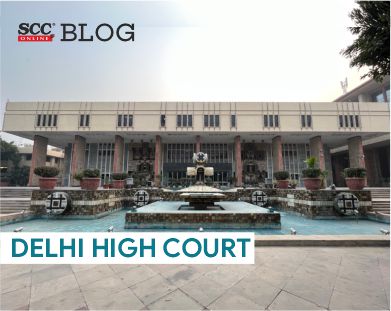Delhi High Court: In a case wherein an application was filed under Section 151 of the Civil Procedure Code to seek relief of “recalling the old order and then deciding the petition on merits”, a Single Judge Bench of Chandra Dhari Singh, J. dismissed the application as no ground was made for recall of earlier Order and held that the settled things could not be permitted to be unsettled at the behest of a person who had not been careful enough with regard to his rights and claims.
The present application was filed by the petitioner under Section 151 of the Civil Procedure Code, 1908 to seek the following relief:
“Recall order dated 26-9-2022 passed by the Court and the present petition be decided on merits again.”
The petitioner submitted that on 26-9-2022, the present case was listed and when the case was called out, the present counsel was arguing before another Bench and was therefore, unable to appear before the Court and hence, this Court dismissed the petition in Daya Engg. Works (Sleeper) Ltd. v. Union of India, O.M.P. (T) (COMM) 1 of 2020.
The Court noted that the main petition was filed under Section 14 r/w Section 15 of the Arbitration and Conciliation Act, 1996 to seek termination of the mandate of the Sole Arbitrator and appointment of substitute Arbitrator for adjudicating the disputes that had arisen between the parties. The Court further noted that the said Order had been passed on merits.
The Court relied on Budhia Swain v. Gopinath Deb, (1999) 4 SCC 396, wherein the Supreme Court held that “the Courts had inherent power to recall and set aside an order:
-
Obtained by fraud practiced upon the court;
-
When the court is misled by a party;
-
When the court itself commits a mistake, which prejudices a party”.
The Court also relied on A.R. Antulay v. R.S. Nayak, (1988) 2 SCC 602, wherein the Supreme Court held that “the power to recall a judgment will not be exercised when the ground for reopening the proceedings or vacating the judgment was available to be pleaded in the original action but was not done or where a proper remedy in some other proceeding such as by way of appeal or revision was available but was not availed. The right to seek vacation of a judgment may be lost by waiver, estoppel, or acquiescence”.
The Court noted that “the scope of Section 151 of Civil Procedure Code was limited and the inherent powers enshrined therein could be exercised only where no remedy had been provided for in any other provision of law. The exceptions carved out where recall of order could be permitted, as outlined in the afore-mentioned judgments, had not been satisfied by the petitioner”.
The Court further held that the settled things could not be permitted to be unsettled at the behest of a person who had not been careful enough with regard to his rights and claims, therefore, the Court dismissed the application as no case was made to entertain the present application.
[Daya Engg. Works (Sleeper) Ltd. v. Union of India, 2023 SCC OnLine Del 178, Order dated 17-1-2023]
Judgment by: Justice Chandra Dhari Singh
Advocates who appeared in this case :
For the Petitioner: Advocate Anant Agarwal
For the Respondents: CGSC Bhagwan Swarup Shukla
Advocate Sarvan Kumar
*Simranjeet Kaur, Editorial Assistant has reported this brief






